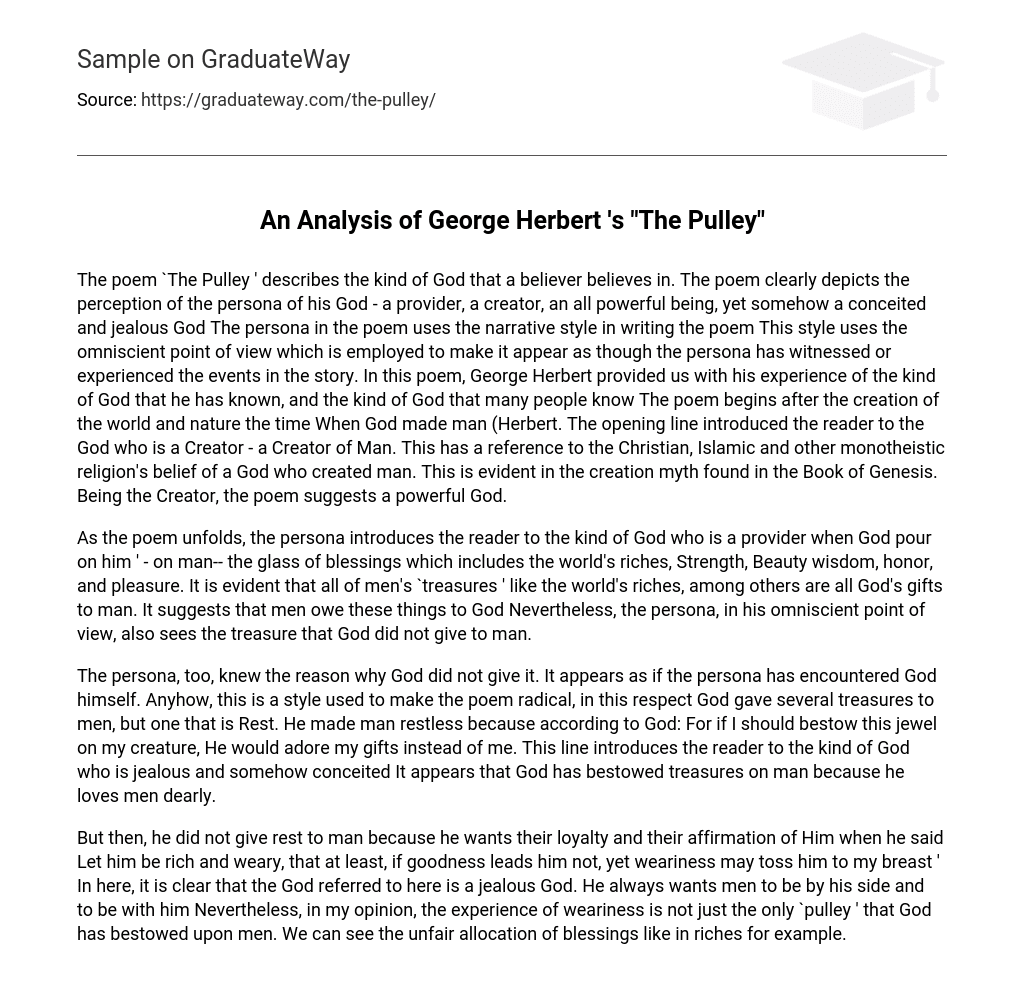The poem `The Pulley ‘ describes the kind of God that a believer believes in. The poem clearly depicts the perception of the persona of his God – a provider, a creator, an all powerful being, yet somehow a conceited and jealous God The persona in the poem uses the narrative style in writing the poem This style uses the omniscient point of view which is employed to make it appear as though the persona has witnessed or experienced the events in the story. In this poem, George Herbert provided us with his experience of the kind of God that he has known, and the kind of God that many people know The poem begins after the creation of the world and nature the time When God made man (Herbert. The opening line introduced the reader to the God who is a Creator – a Creator of Man. This has a reference to the Christian, Islamic and other monotheistic religion’s belief of a God who created man. This is evident in the creation myth found in the Book of Genesis. Being the Creator, the poem suggests a powerful God.
As the poem unfolds, the persona introduces the reader to the kind of God who is a provider when God pour on him ‘ – on man– the glass of blessings which includes the world’s riches, Strength, Beauty wisdom, honor, and pleasure. It is evident that all of men’s `treasures ‘ like the world’s riches, among others are all God’s gifts to man. It suggests that men owe these things to God Nevertheless, the persona, in his omniscient point of view, also sees the treasure that God did not give to man.
The persona, too, knew the reason why God did not give it. It appears as if the persona has encountered God himself. Anyhow, this is a style used to make the poem radical, in this respect God gave several treasures to men, but one that is Rest. He made man restless because according to God: For if I should bestow this jewel on my creature, He would adore my gifts instead of me. This line introduces the reader to the kind of God who is jealous and somehow conceited It appears that God has bestowed treasures on man because he loves men dearly.
But then, he did not give rest to man because he wants their loyalty and their affirmation of Him when he said Let him be rich and weary, that at least, if goodness leads him not, yet weariness may toss him to my breast ‘ In here, it is clear that the God referred to here is a jealous God. He always wants men to be by his side and to be with him Nevertheless, in my opinion, the experience of weariness is not just the only `pulley ‘ that God has bestowed upon men. We can see the unfair allocation of blessings like in riches for example.





